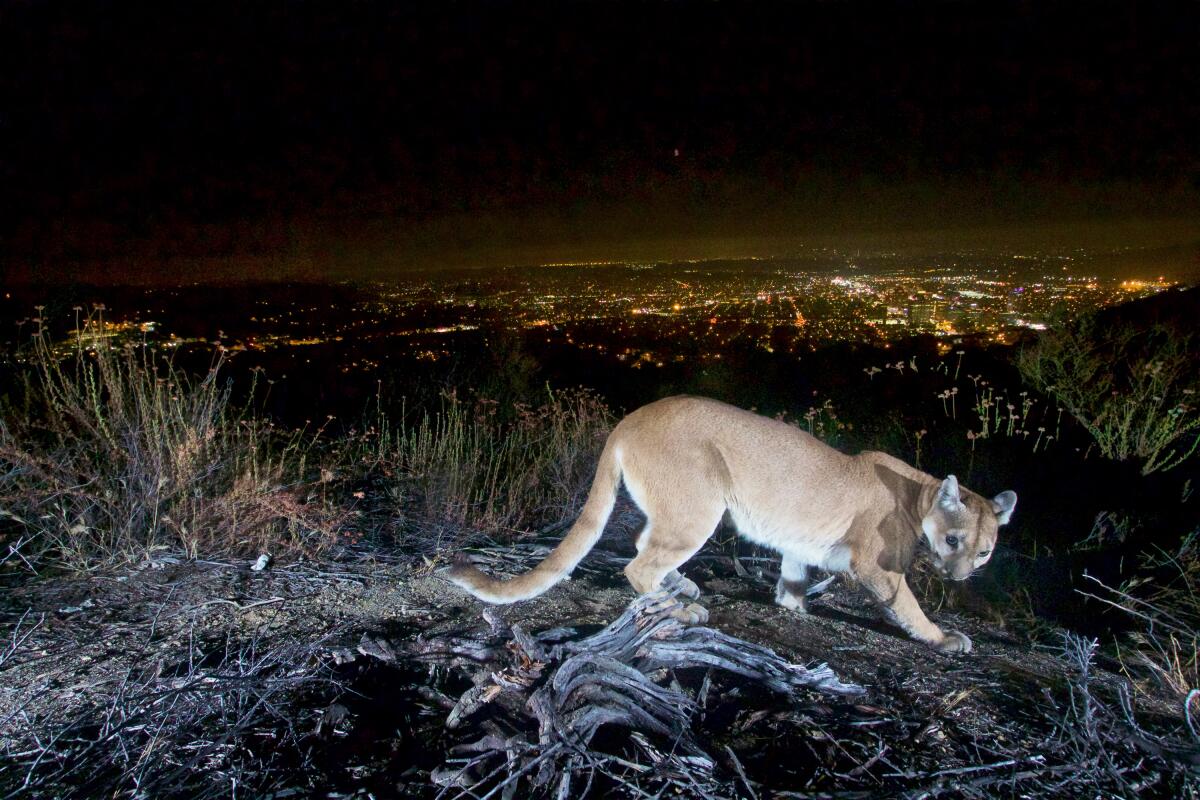
A mountain lion that was put down by park rangers after it attacked a 5-year-old boy in Malibu Creek State Park earlier this month was identified as a slightly underweight female just over a year old.
The lion weighed nearly 53 pounds and had nothing in her stomach during the attack, according to the necropsy results released from the California Department of Fish and Wildlife last week. The lion was roughly 12 to 16 months old and 3 to 5 pounds underweight for her age, officials said.
And she appeared to have been relatively healthy. According to a spokesperson for the agency, the cat did not have rabies, mange or any “obvious internal organ abnormalities to indicate illness.”
Officials did not release any additional information about the animal.
The lion attacked the boy while he was out for a picnic on Sept. 1 with his family at the park. He was playing with a group of children in a designated picnic area when the large cat attacked, officials said. The lion tried to drag him away, but the boy’s father fought the lion until she released him, family members told news station KTLA.
Park Rangers who arrived on the scene found the cat in a tree and shot her with a gun, according to the California Department of Fish and Wildlife.
Mountain lion attacks on humans in California are rare. The incident at Malibu Creek State Park is the 24th reported attack recorded in California since 1986, with four of those being fatal.
While the ranger’s decision to kill the mountain lion drew criticism online, experts explained that the action was not taken lightly.
“It attacked a small child, and we were concerned if we didn’t remove the animal, it may attack and possibly kill another child,” California Department of Fish and Wildlife spokesperson Patrick Foy said shortly after the incident.
Officials pointed to a fatal mountain lion attack in 2004, where a big cat killed a mountain biker in Orange County and then nearly killed a woman hours later.
While Californians fell in love with famed mountain lion P-22, a male who managed to coexist with humans while living in Griffith Park, that big cat was part of an ongoing study and was collared. P-22 roamed the hillsides around the residential neighborhoods over the years, but there were no reported attacks on humans.
State wildlife officials are often confronted with the difficult decision of what to do when wildlife become accustomed to humans.
Earlier this year, a pack of coyotes tormented residents in Mar Vista as the creatures set up a den in the neighborhood. The coyotes stalked children and probably devoured numerous pets as they claimed the neighborhood as their territory.
Residents said the coyotes grew bold and were just not afraid of their human neighbors. City officials cautioned residents to not create a welcoming environment for the animals and to not feed them, but the call to coexist with the animals left many residents feeling that they were at the coyotes’ mercy.
Rebecca Dmytryk, co-owner of Humane Wildlife Control, a private pest control business, said earlier this year that the coyotes’ actions seemed aggressive because coyote parents are territorial and want to convey to other canines in the neighborhood that they have pups.
Sometimes the wildlife guests weigh 500 pounds, like the black bear called Victor who frequented the Mammoth Lake campgrounds. The bear was put down after it swiped at a woman’s leg in August as it sauntered through a picnic area, according to a video of the encounter.
Officials defended their decision, stating that the bear was deemed a threat because it attacked the woman unprovoked.